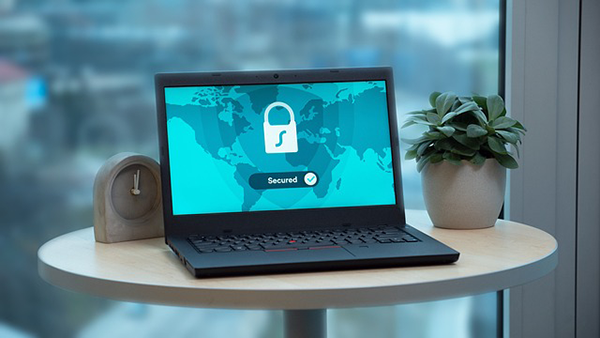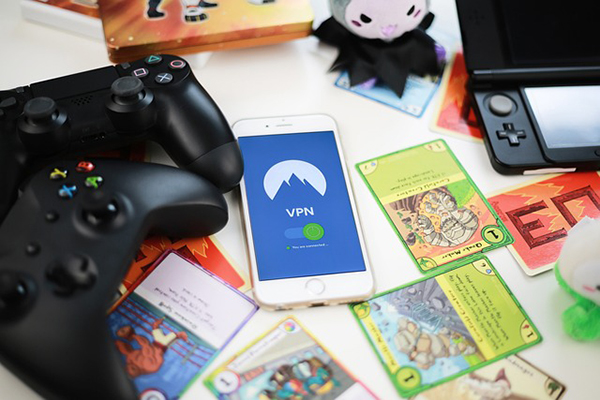
Port forwarding and VPNs are becoming increasingly necessary in a world where a lot of our information and online experiences are not often as private as we’d like them to be. Understanding how these two tools work is vital in ensuring our online data is kept safe and our time spent on our devices is optimized and enhanced.
Table of Contents
What Is Port Forwarding?
Port forwarding allows data packets to be directed from one network device to another within a local area network or across the internet. It kind of acts as a virtual bridge for communication between devices that may be separated by things like firewalls or routers. Creating a specific port on a router or other device allows incoming data to be forwarded to where you want it to go. This enables you to game online, share data more efficiently and access things remotely. Without port forwarding, incoming data and requests would not be properly routed, meaning the services and resources you need would not be as secure or efficient.
What Is A VPN?
You’ve more likely heard of VPNs. It stands for Virtual Private Networks and are essential tools when it comes to online privacy and security. Essentially, a VPN creates a secure and encrypted connection between your device and a remote server operated by the VPN provider. This helps to conceal your internet activities from prying eyes, such as hackers, ISPs, or even government agencies. By rerouting your internet traffic through this encrypted tunnel, VPNs protect your data from potential eavesdropping or surveillance.
And it doesn’t stop there. VPNs can also mask your IP address, making it appear as if you’re using your device from a different location. This can help bypass geo-restrictions and access content that may be blocked where you actually are browsing from. For example, if you’re a student studying abroad in China, you may be able to access a useful video on YouTube using a VPN. So whether you’re using a VPN for safeguarding private information on public Wi-Fi networks, accessing restricted content, or if you care about remaining anonymous online, VPNs play a pivotal role in enhancing online privacy and security.
How Do They Work Together?
Port forwarding with VPNs involves configuring your router or VPN server to direct specific incoming network traffic to a particular device or service on your local network. When port forwarding using PrivateVPN, there are two options: static port forwarding and dynamic port forwarding. The first is a great option for those who aren’t as bothered about remaining anonymous because it is far more convenient and reliable. However, if you are worried about your anonymity then you should go with dynamic port forwarding because there are fewer security risks because the port forwarding is available on all open ports.
What Is It Useful For?
Port forwarding with a VPN can be useful for various scenarios, primarily when you want to access specific services or devices on your local network while maintaining the privacy and security benefits of a VPN connection. Here are some common use cases:
- Remote Access to Home Network: You can use port forwarding with a VPN to access devices and services on your home network while you’re away. For example, you can access security cameras, network-attached storage (NAS), or home automation systems securely.
- Web Hosting: If you host a website or web service from your home or office, port forwarding allows external users to reach your server even when you’re using a VPN. This is useful for personal websites or small businesses that want to maintain control over their hosting environment.
- Gaming: Online gaming often requires specific ports to be open for optimal connectivity. With port forwarding, you can ensure that these gaming ports are accessible through your VPN connection, reducing latency and improving the gaming experience.
- Remote Desktop and File Sharing: If you use remote desktop applications or need to share files remotely, port forwarding can help establish connections to your computer from anywhere, while your VPN keeps the connection secure.
- FTP and Other Services: If you run FTP (File Transfer Protocol) servers or other services that rely on specific ports, port forwarding ensures that these services remain accessible through your VPN connection.
- Custom Network Configurations: Port forwarding allows you to customize your network setup to suit your specific needs. It lets you direct incoming traffic to different devices or services based on port numbers, enhancing the versatility of your network.
- Peer-to-Peer Applications: Some peer-to-peer applications or torrent clients may benefit from port forwarding to improve connectivity and download/upload speeds while using a VPN for privacy.

What Are The Risks?
Port forwarding using private VPNs can introduce security risks that users should be aware of. When configuring port forwarding, you are essentially opening specific ports on your router, exposing devices or services on your local network to the internet. If not done correctly, this can create vulnerabilities that malicious actors could exploit. For instance, if you’ve configured a port forwarding rule incorrectly, then you may accidentally expose your device to security issues, such as unauthorized access and attacks. Another potential risk is your network being more susceptible to scans and probes by cybercriminals because there is a weakness when accessing local resources from your device.
You can decrease the chances of these problems occurring by always keeping security at the forefront of your mind when setting up port forwarding. Follow recommended practices, such as limiting the number of open ports, using strong passwords, and always keeping router firmware up to date because they often put extra security measures in place where vulnerabilities have been revealed.
How To Get Started
Start by selecting a reputable VPN service provider that supports port forwarding. Be aware that not all VPN services offer this feature, so make sure to check if it’s included in the plan you choose. You’ll then need to sign up for the VPN service and install their VPN client on your device. Follow their instructions for setup, which typically involves downloading and installing the VPN software, and then configuring your connection settings, including server location and VPN protocol.
In conclusion, port forwarding opens up exciting possibilities for remote access, gaming, hosting, and customized network configurations. However, it should always be approached with caution to mitigate potential security risks. When coupled with a VPN, you can strike a delicate balance between accessibility and privacy, ensuring that your online activities remain secure and confidential.

